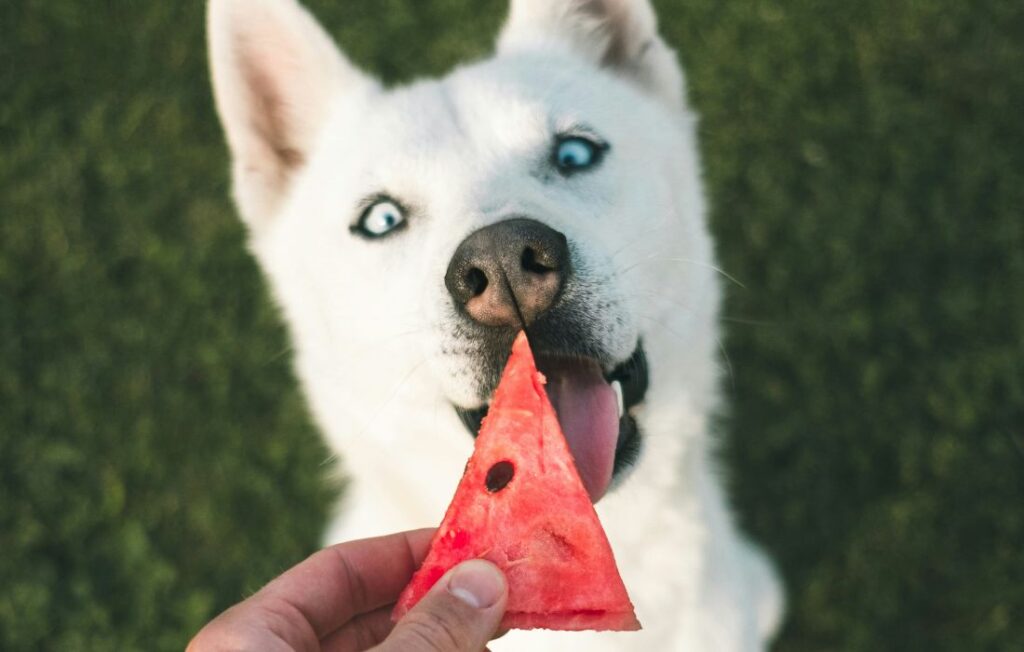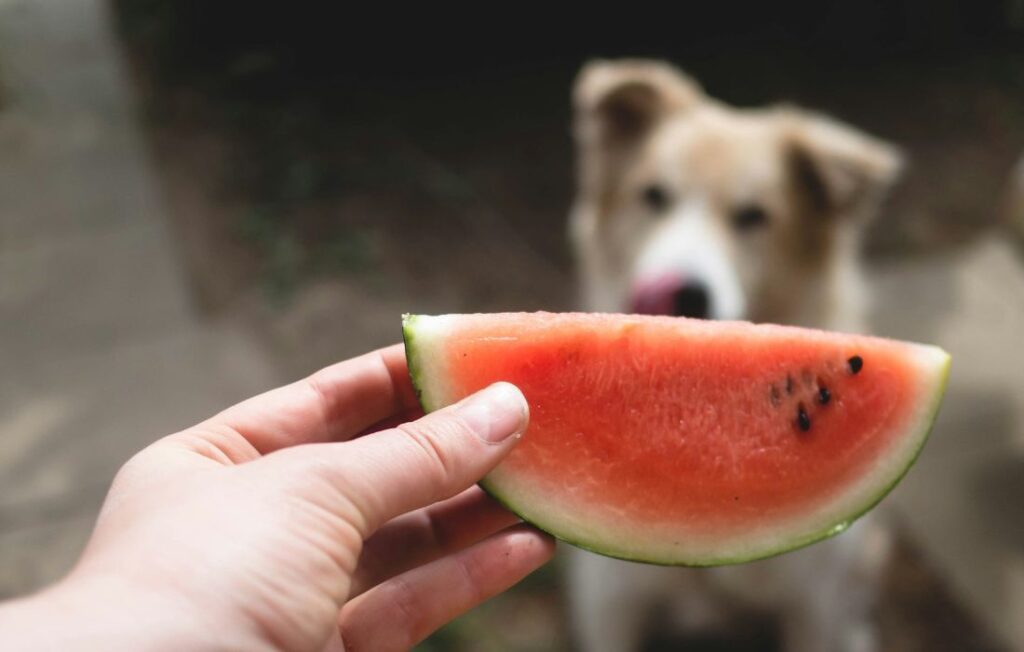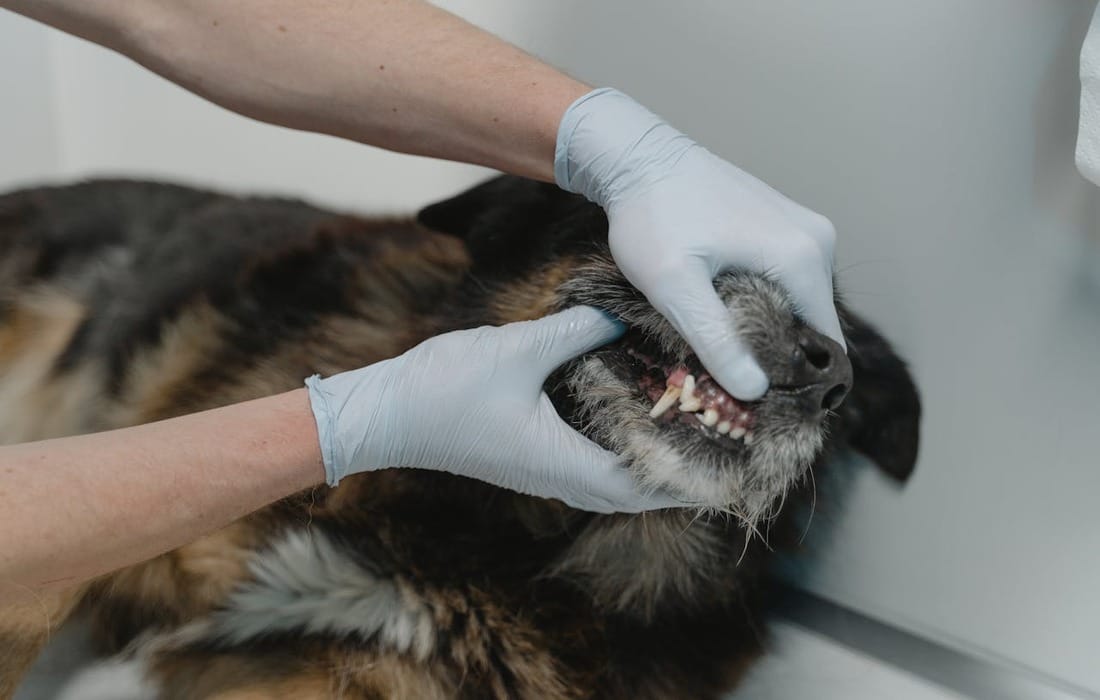Watermelon is a summer favorite that is not full of vital nutrients such as vitamins A, B6, and C, but also a great for hydration. But have you ever wondered if it’s safe to share this juicy treat with your furry friend? The short answer is yes, dogs can eat watermelon, but there are a few things you need to keep in mind. While the sweet flesh is packed with hydration and nutrients, certain parts of the fruit—like the seeds and rind—can pose risks.
In this guide, I’ll explain how to safely serve watermelon to your pup, how much they can have, and which fruits you should avoid altogether. After all, treating your dog should always be about balance and care. Let’s make sure snack time stays healthy and fun!
Is Watermelon Safe for Dogs?
When it comes to sharing food with our furry family members, safety is non-negotiable, and watermelon is often a point of curiosity for dog owners. You’ll be relieved to know that watermelon can indeed be a healthy treat for dogs, but—as with anything—there are pros and cons to consider. Let’s explore the essential nuances of giving watermelon to your pup.
Nutritional Benefits of Watermelon for Dogs


Watermelon isn’t just a refreshing summer snack for us; it’s also packed with nutrients that can benefit your dog when offered in moderation. Here’s why watermelon stands out:
- Hydration Boost: Did you know watermelon is about 92% water? This makes it a fantastic option for keeping your pup hydrated, especially during hotter months or after exercise.
- Vitamin Powerhouse: Watermelon is loaded with vitamins that support overall health. Vitamin A promotes healthy skin and eyesight, Vitamin B6 assists in energy metabolism, and Vitamin C boosts immune function, just like it does for humans.
- Rich in Potassium: Potassium is another win, contributing to improved muscle and nerve function in dogs.
- Antioxidants Like Lycopene: Lycopene is what gives watermelon its red hue and provides a host of health benefits. This antioxidant helps reduce inflammation and supports heart health in dogs.
These nutrients make watermelon a low-calorie treat. However, it’s important not to overdo it—treats should always complement a balanced diet and not replace it.
Potential Risks of Feeding Watermelon to Dogs
While watermelon has its nutritional perks, it isn’t entirely free of risks. Here’s what you need to keep in mind to avoid potential dangers to your furry friend:
- Choking Hazards: The seeds in watermelon might seem harmless, but they can pose a choking risk for your dog, especially smaller breeds. Even if swallowed, they could potentially cause intestinal blockage.
- Digestive Problems from the Rind: Although the fleshy part of the watermelon is safe, the rind is a different story. It’s tough, fibrous, and hard for dogs to digest, which can lead to gastrointestinal problems, including diarrhea or vomiting.
- Portion Control is Key: Even the healthiest fruits like watermelon can cause trouble when consumed in large amounts. Eating too much can lead to an upset stomach or diarrhea due to the high natural sugar and water content.
To keep your dog safe, follow these precautions:
- Remove the seeds and rind completely before offering a piece of watermelon.
- Start with small portions to see how your dog’s stomach reacts.
- Monitor your dog after feeding to ensure no adverse reactions occur.
How to Serve Watermelon to your Dog
Serving watermelon to your dog isn’t just about tossing them a piece and calling it a day. To make snack time truly enjoyable (and safe), you’ll need to keep their size, preferences, and dietary needs in mind. Plus, there are some clever serving ideas you can try to make this treat extra special.
Serving Sizes Based on Dog Size
Not all dogs are built the same, and that includes their ability to process treats like watermelon. Portion size matters—too much of even a healthy treat can upset their stomach. Here are some quick guidelines based on your dog’s size:
- Small dogs (under 20 lbs): Start with 1-2 small bite-sized pieces of watermelon. Think of it as a small dessert, not a feast.
- Medium dogs (20-50 lbs): A few more pieces are okay here, such as 3-5 small cubes or a thin slice. Always gauge based on their excitement and how much other food or treats they’ve had that day.
- Large dogs (50+ lbs): Larger dogs can enjoy a handful of cubes or up to three thin slices. Keep an eye on how they handle the sugar and water content.
Creative Ways to Serve Watermelon


Offering plain watermelon is good, but you can also get creative to make it a real treat for your furry friend. Here are some fun and safe ways to serve watermelon that your dog will love:
- Frozen Watermelon Cubes Freeze small, seedless chunks of watermelon into bite-sized cubes. They’re like little canine popsicles, perfect for cooling off during a hot day. Plus, they’ll keep your dog hydrated.
- Watermelon Smoothies Blend watermelon chunks with unsweetened, plain yogurt for a creamy and refreshing smoothie. You can even mix in a splash of water or a few strawberries for extra flavor.
- Stuffed KONG Toys Fill a KONG toy or similar treat-stuffing toy with watermelon puree. Pop it into the freezer for 2-3 hours, and you’ve got an activity-based snack that will keep them entertained while staying cool.
- Layered Watermelon Treats Alternate layers of watermelon slices and plain yogurt to make a mini “dog cake.” This is especially fun for celebrations like your pup’s birthday.
- Dehydrated Watermelon Chews Dehydrate thin watermelon slices to create chewy treats. These are great for dogs who love texture and something to really work on.
Experiment with these ideas to find out which one your dog loves the most! Always prioritize safety by removing seeds and rind, as these can pose choking hazards or upset your dog’s digestion.
Common Signs of Watermelon Sensitivity in Dogs
While watermelon is a safe and hydrating treat for most dogs, not every pup reacts the same way. Some dogs may experience discomfort or show signs of sensitivity when introduced to watermelon. Understanding these signs can help keep your dog safe and comfortable while enjoying treats.
When to Stop Feeding Watermelon
Although watermelon is generally safe for dogs, not all of them tolerate it well, and overfeeding can lead to issues. Knowing when to pause or stop feeding your dog watermelon is crucial. Signs that watermelon might not be suitable for your dog can include:
- Digestive Upset: Symptoms like diarrhea, vomiting, or excessive gas might indicate your dog’s digestive system isn’t loving it.
- Itchy Skin or Hives: Allergic reactions can show up as itchiness, redness, or hives—common signs of food sensitivity in dogs.
- Swollen Face or Pawing at the Mouth: Sneezing, coughing, or facial swelling could signal a more serious intolerance or an allergic reaction.
- Changes in Stool Consistency: Loose or discolored stool after consuming even just a small portion can be a red flag.
Remember, moderation is key. Even too much of a good thing like watermelon can upset your dog’s stomach. Always start small and observe for any adverse reactions. If you suspect your dog is having serious issues, like difficulty breathing, seek professional help immediately.
Frequently Asked Questions
If you’re wondering whether dogs and watermelon mix well, you’re not alone. It’s a common question for pet owners who want the best for their furry friends. Watermelon can be a nutritious treat, but it comes with rules and limits to ensure your dog benefits without any unwanted side effects. Let’s dive into some of the most frequently asked questions about this juicy snack.
How Much Watermelon Can I Give My Dog?
As much as we’d love to spoil our dogs, moderation is key when feeding them treats like watermelon. A good rule to follow is the 10% rule—treats should never exceed 10% of your dog’s daily caloric intake. This ensures that goodies like watermelon are an occasional indulgence and not a replacement for a balanced diet.
For portion guidance:
- Small dogs (under 20 lbs): 1-2 small pieces of seedless, fleshy watermelon.
- Medium dogs (20-50 lbs): Around 3-5 bite-sized chunks.
- Large dogs (50+ lbs): A handful of pieces or up to three thin slices.
Overfeeding watermelon can cause an upset stomach due to its high sugar and water content. Keep an eye out for loose stools or discomfort, and adjust servings accordingly.
Do Dogs Fully Digest Watermelon?
Dogs can easily digest the juicy flesh of watermelon, which is hydrating and packed with beneficial nutrients. However, the seeds and rind are another story. Watermelon seeds are small but can cause intestinal blockages, especially for smaller breeds. Similarly, the tough rind is difficult for dogs to chew and digest, often leading to stomach upset or diarrhea.
If your dog accidentally ingests seeds or rind, monitor them closely for any signs of distress, such as vomiting, constipation, or a bloated belly. When in doubt, consult your vet.
What Fruits Can’t Dogs Eat?
While fruits like watermelon are safe when served properly, some fruits can be dangerous—and even life-threatening—to dogs. Before sharing your fruit bowl with your furry friend, make sure you know which snacks to never offer. Here are some common fruits to avoid:
- Grapes and Raisins: Even in small amounts, these can cause kidney failure in dogs.
- Cherries: The pits contain cyanide, which is highly toxic if ingested.
- Avocado: The high-fat content and toxin persin can trigger vomiting or diarrhea.
- Unripe Tomatoes and Green Tomatoes: These contain solanine, which is harmful in larger quantities.
Always double-check fruit safety before feeding anything new to your pet. For a full list of toxic fruits, check out this helpful guide by the American Kenel Club.
Final Thoughts
Watermelon can be a fun, hydrating, and nutritious treat for your dog when prepared and served correctly. With its abundance of vitamins and antioxidants, it’s a healthy snack option—but only if you stick to seedless flesh, avoid the rind, and serve it in moderation. Safety and portion control are non-negotiable to prevent digestive problems or choking hazards.
As always, prioritize your dog’s unique needs by consulting your veterinarian before introducing any new food. If you’ve got creative ways your pup enjoys watermelon—or questions about other dog-safe fruits—drop them in the comments. Let’s keep snack time both delicious and safe!













